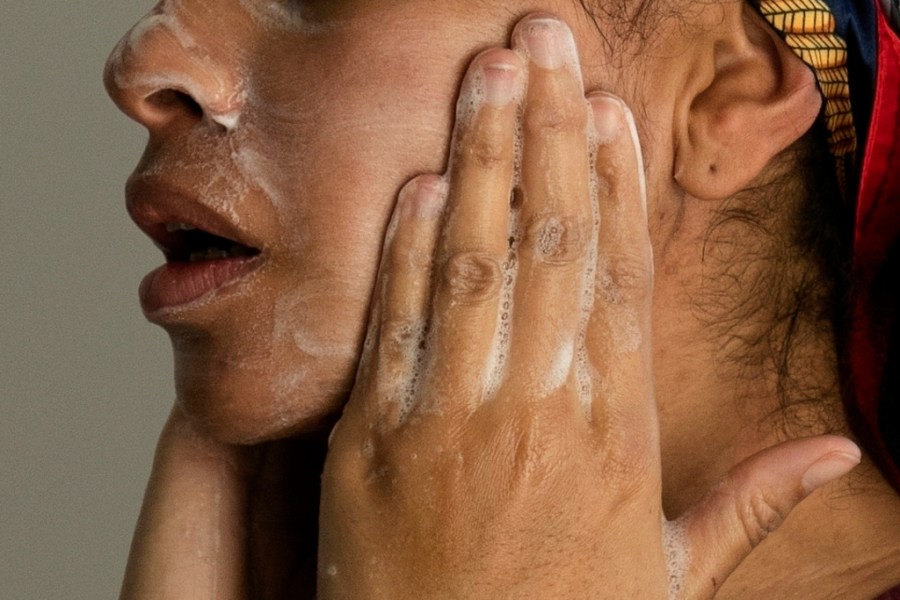As social media platforms like TikTok and Instagram flood users with elaborate skincare routines, dermatologists are questioning the necessity and effectiveness of many trending products. Videos showcasing multi-step regimens often feature expensive items such as snail mucin and red-light therapy masks, which claim to hydrate the skin and reduce fine lines. Yet, experts argue that these complicated routines may do more harm than good.
Dr. Kathleen Suozzi, a professor of dermatology at Yale School of Medicine, emphasizes that individuals often take on the role of their own skin clinicians, trying to diagnose their skin type and experiment with various regimens. “Skincare regimens have become way overcomplicated,” she said.
A key issue is that many viral skincare products may not be necessary. While some may feel pleasant on the skin, others could lead to irritation or exacerbate existing skin issues. The skin on the face is notably thinner and requires gentler care than the skin on the rest of the body.
Face skin requires extra protection
Dermatologists recommend that a basic skincare routine should start with three essential components: a gentle cleanser, a moisturizer to hydrate the face, and a sunscreen with a minimum SPF of 30. Overloading the skin with too many products can lead to irritation, especially for those with sensitive skin.
“The truth of the matter is, nine out of ten skincare concerns on the face that people come to see me for are worsened by UV radiation from the sun,” explained Dr. Oyetewa Asempa, director of the Skin of Color clinic at Baylor College of Medicine. Many common skin issues, such as wrinkles and dark pigmentation, can be exacerbated by sun exposure.
What to know about retinol and exfoliation products
As individuals age, skin loses collagen, leading to wrinkles and a less youthful appearance. Retinol creams and chemical exfoliants are often marketed as solutions to combat these signs of aging. While some dermatologists endorse their use, caution is advised.
Dermatologists recommend waiting until around the age of 30 to start using retinoids, as younger users may experience irritation. Dark spots and dead skin are also frequent concerns for many individuals. Exfoliation can aid in removing dead skin, but dermatologists advise against physical exfoliants like beads or salts, which can be too harsh on delicate facial skin. Instead, they suggest opting for chemical exfoliation using alpha-hydroxy acids or beta-hydroxy acids, always paired with sunscreen.
While the FDA has established guidelines indicating that chemical exfoliation is safe when certain ingredient levels are adhered to, these regulations do not extend to more intense chemical peels performed by professionals in salons.
What skin products to avoid
In the fast-paced world of social media, influencers often promote trendy skincare products that some dermatologists view with skepticism. Dr. Asempa points to a current favorite: beef tallow, or cow fat. “I want you to leave the beef tallow with the cows,” she remarked.
Similarly, light therapy masks, while popular, are often overhyped. Dr. Suozzi notes that although some research suggests potential benefits of red-light therapy masks in promoting collagen production, they are “not something that’s going to be transformative” on their own. For any significant results, consistent use several times a week is necessary.
More expensive skin products don’t necessarily work better
Many skincare products come with hefty price tags, leading consumers to believe that higher costs correlate with greater effectiveness. However, Dr. Jordan Lim, a dermatology professor at Emory University School of Medicine, asserts that price does not equate to efficacy. “A lot of the ingredients you’re seeing in a $6 cream are also in a $20 cream, also in that $300 cream that you see a celebrity using,” Lim stated.
As the beauty industry continues to evolve and adapt to consumer demands, dermatologists urge individuals to focus on fundamental skincare practices rather than getting swept up in the latest social media trends. The emphasis should be on protecting the skin and maintaining a simple, effective routine tailored to one’s specific needs.







































































